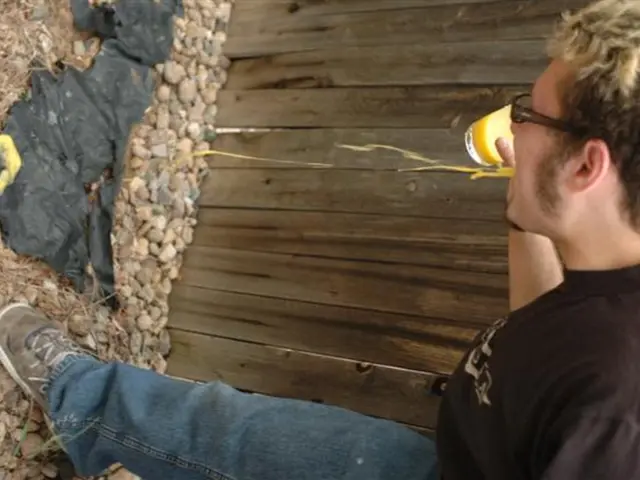Kentucky Governor Andy Beshear signs the bill banning Gray Games, a controversial casino-like event, into law.
Kentucky's bill restricting the operation of skill games appears to have turned the corner, moving from a precarious position last week to becoming law.
The governor, Andy Beshear (D), announced the signing of House Bill 594 during his weekly briefing to pressreporters. The legislation, sponsored by state Representative Killian Timoney (R-Nicholasville), prohibits venues from hosting the gaming machines that have spread throughout the state lately. Anybody found in violation of the law faces fines of up to $25K per machine, including those who own, run, finance, manage, or supervise these machines.
This topic has been a contentious point in the state for the past few years. Kentucky's horse racing industry and charitable organizations advocated for the ban, labeling the gaming machines, known as 'gray games,' as illegal gaming in a state that already permits pari-mutuel horse racing, historical horse racing, a state lottery, and charitable gaming.
On the other side of the argument are the manufacturers, distributors, businesses, and organizations hosting the machines. They argue that the games are legal and do not violate state statutes. Organizations like Pace-O-Matic and Prominent Technologies have sought approval from county authorities before collaborating with convenience stores, restaurants, and other establishments. They refer to these games as skill games because they require players to use their memory and hand-eye coordination to win.
Representatives from veterans' organizations claimed that these games have negatively impacted their gaming operations, which reduced their ability to support civic causes. Businesses hosting the games stated that they served as a valuable source of revenue that helped many of them stay afloat during the pandemic.
Beshear Questions the Legality of the Games
Beshear informed reporters that he considers himself a "pro-gaming governor" but emphasized the need for the state to regulate legal offerings.
Though he backs the sports betting bill now in the Senate, and said, "It's high time we have full-blown casino gaming," the governor couldn't extend that support to the machines he dubbed as "gray."
They're unregulated completely, Beshear said. “I don’t think they were legal, yet they came into Kentucky and simply set up shop without any regulation, without any taxation, without any system to assist those who may develop problems from using them for gambling.”
After Beshear signed the bill into law, the machines will officially be deemed illegal and must be taken out of operation when the law goes into full effect 90 days after the General Assembly session concludes.
The last day of the session is March 30.
In a statement, Wes Jackson, president of the Kentucky Merchants and Amusement Coalition (KY MAC), criticized HB 594 as being "restrictive, unfavorable to small businesses, and against Kentucky citizens." He added that the group, representing numerous game-hosting establishments across the state, is reviewing its options.
AGA Views Kentucky Law as a "Lever"
The American Gaming Association (AGA) took notice of HB 594's passage, as the organization has urged states and the federal government to take action against illegal gaming operators. Based on the association's estimates, Americans bet more than half a trillion dollars in the illegal market, including on gray machines.
In a letter to members on Thursday, AGA President and CEO Bill Miller applauded Kentucky for being the first state to pass a standalone law banning unregulated gaming machines.
“This victory serves as evidence of what we can achieve when we all collaborate as an industry for a shared objective-and the American Gaming Association will use it as a stepping stone to pursue similar success in states across the nation,” Miller wrote.
Bouncing Back from the Edge
Two weeks ago, HB 594 faced an uncertain future after a plurality of legislators voted to table the bill. This move was headed by state Representative Steven Doan (R-Erlanger), who sponsored House Bill 525 to establish a state gaming commission to regulate and tax the machines. However, this bill has yet to receive a committee meeting.
Twelve days later, House leaders managed to revive the bill and guide it through the chamber with a 64-32 vote. On Tuesday, the Senate Licensing and Occupations Committee approved the bill, with the full Senate passing it on the same day by a 29-6 vote.
Jackson criticized the legislators who voted for the ban.
“Those who endorsed this ban like to say they passed it because skill games require regulation, yet at the same time, they wouldn’t even grant our regulation bill a hearing."








